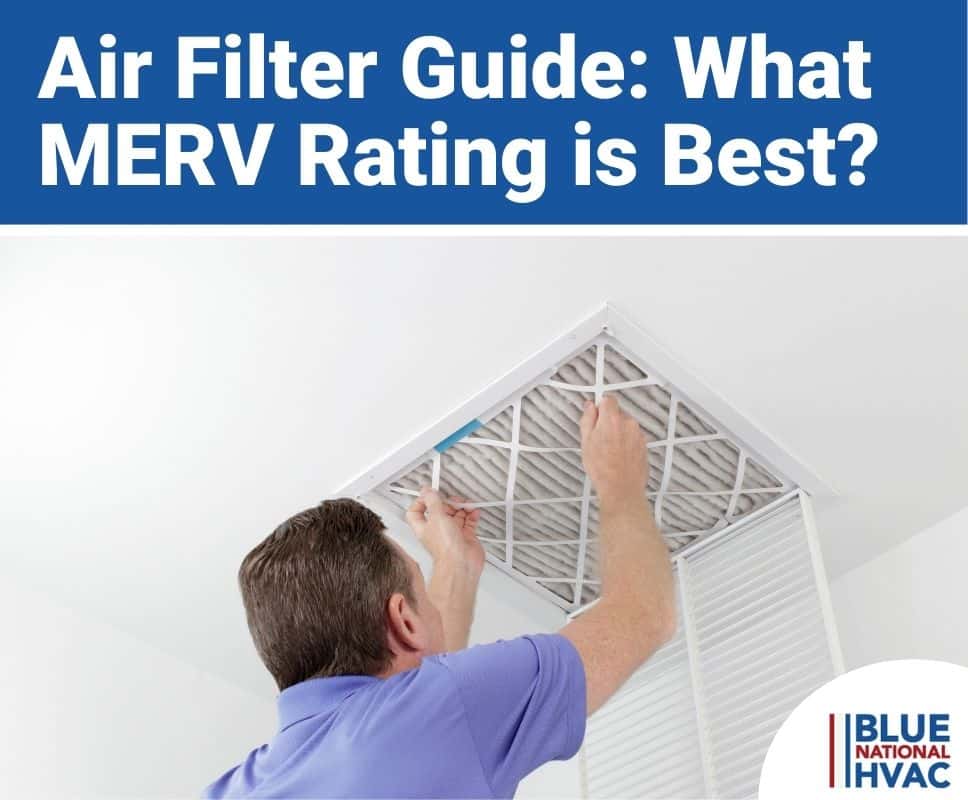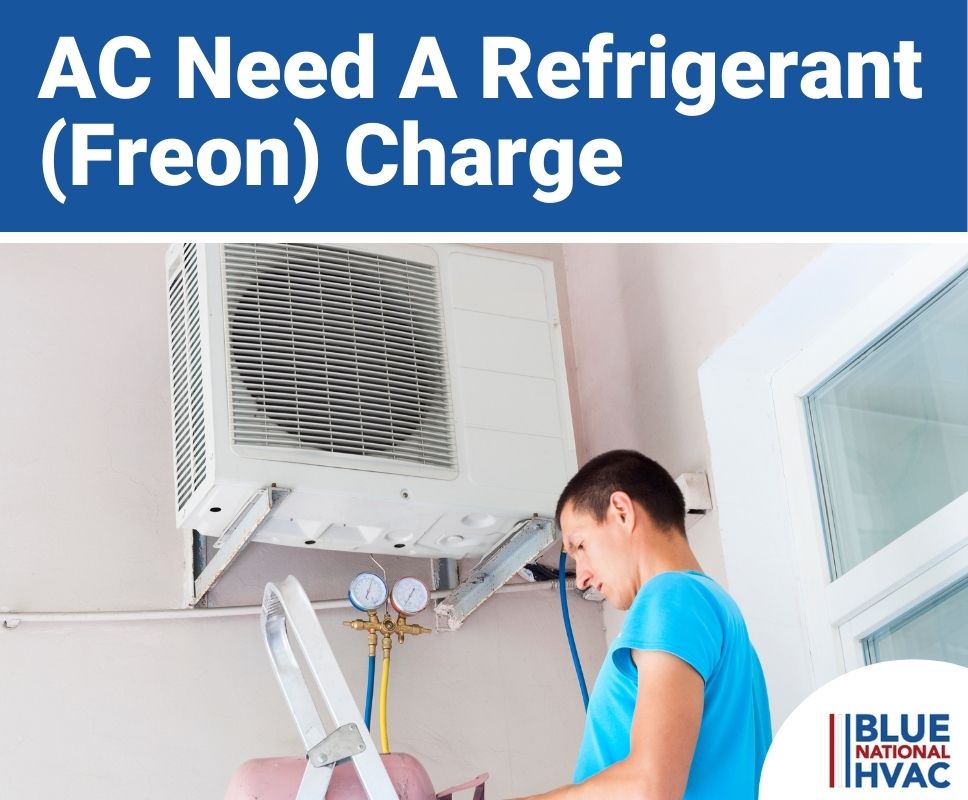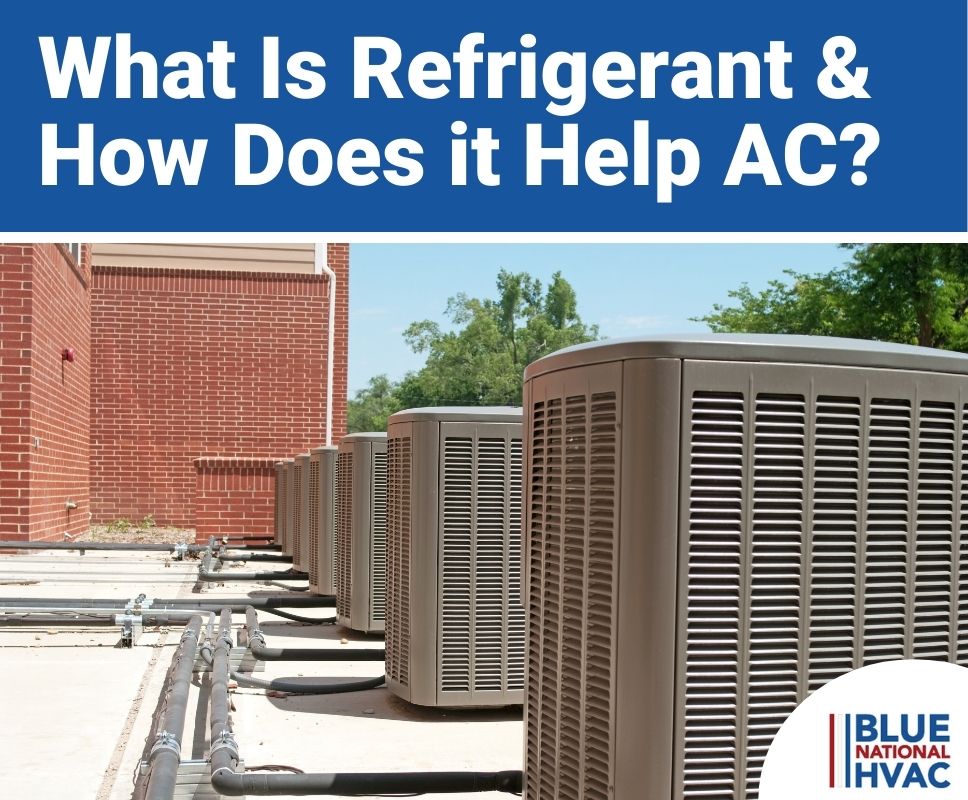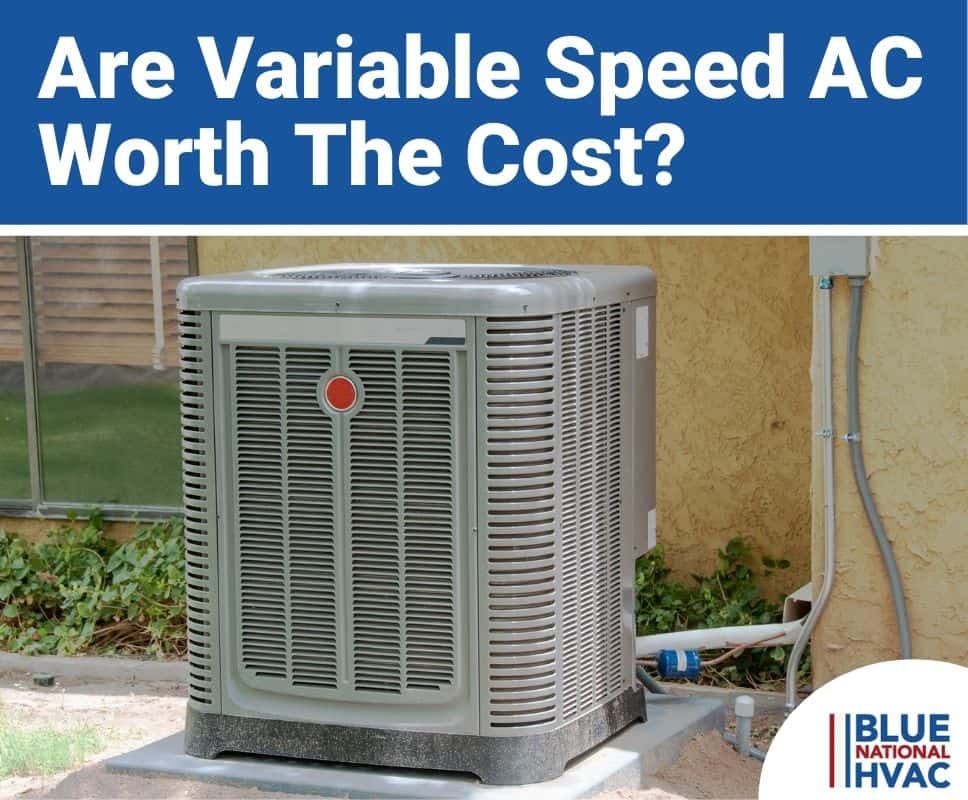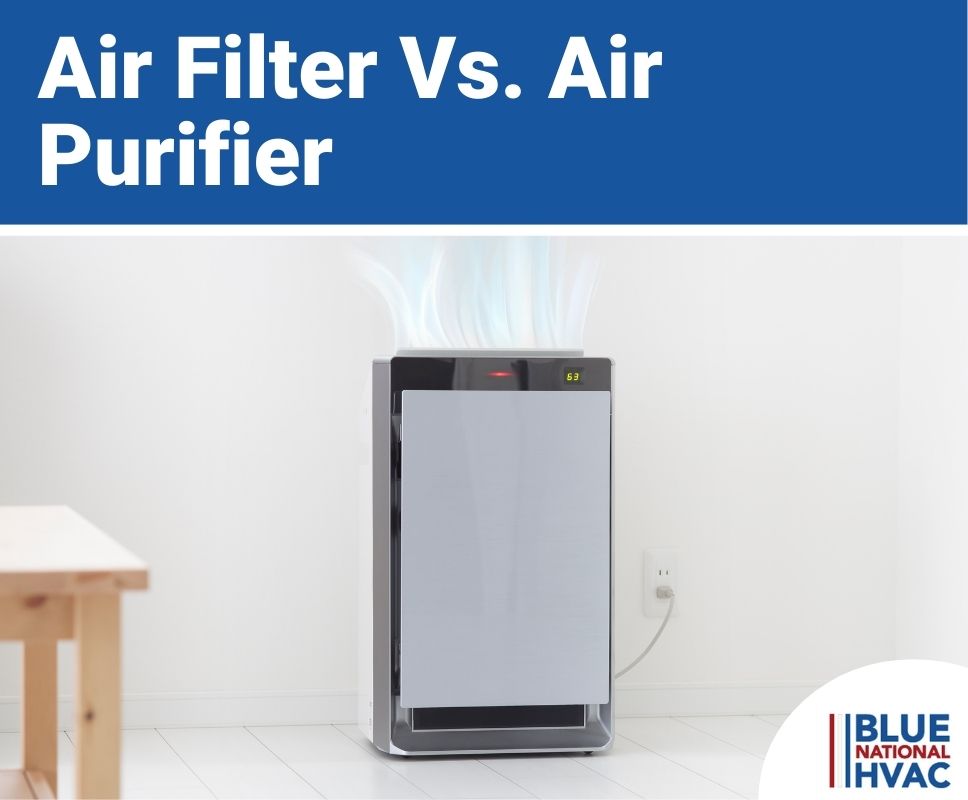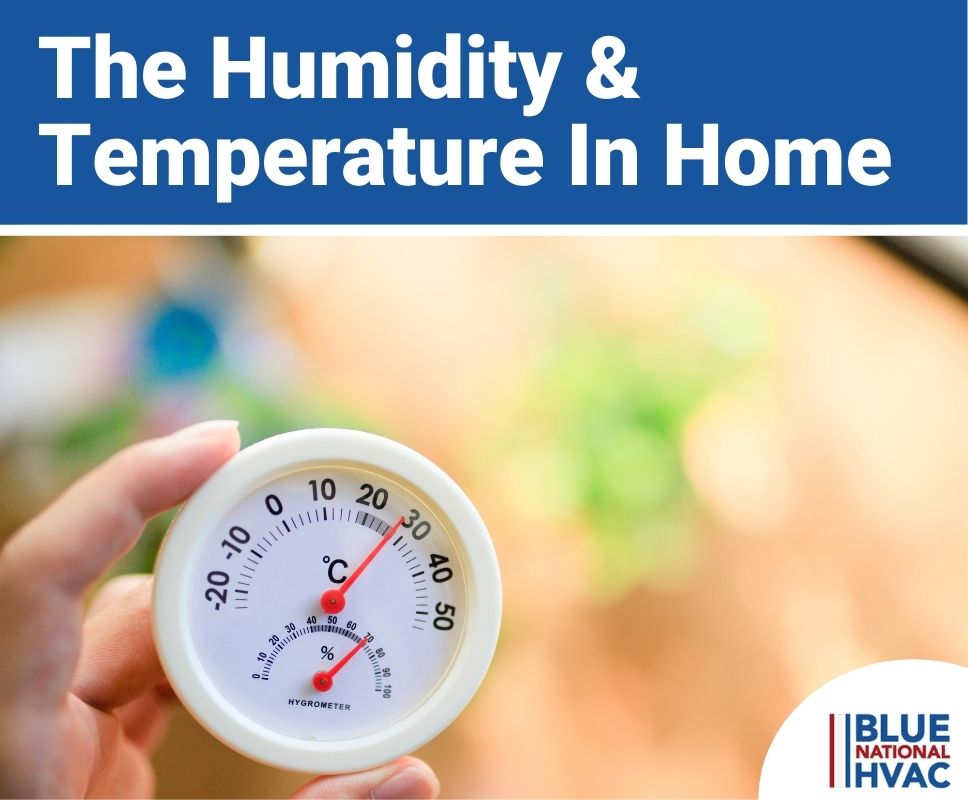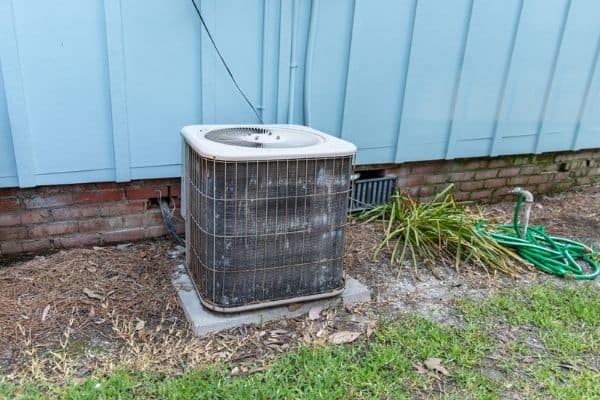What Is A MERV Rating?
Minimum Efficiency Reporting Values, or MERV ratings, are a scale used to rate your air filter’s ability to trap particles. Values range from 1 to 16 and serve various purposes, mainly the particle size they can capture.
HVAC manufacturers and ASHRAE (American Society of Heating, Refrigerating, and Air-Conditioning Engineers) use this scale to gauge a filter’s performance when removing particles from airflow.
MERV 1-4
Filters given a MERV rating of 1-4 will trap less than 20 percent of particles between 3.0 and 10.0 micron. These filters are ideal for areas with a lot of pollen, carpet fibers, dust mites, sanding dust, and spray paint dust.
MERV 5-8
Depending on the rating, these filters trap between 20 and 85 percent of particles between 3.0 and 10.0 micron. They can trap hair spray, cement dust, mold spores, and fabric protectors.
MERV 9-12
Filters rated between 9 and 12 can trap up to 89 percent of particles sized 1.0 to 3.0 micron and up to 90 percent or better of particles between 3.0 to 10.0 micron. The efficiency does depend on the rating. Filters can trap things like lead dust, humidifier dust, milled flour, and auto emissions.
MERV 13-16
MERV ratings between 13 and 16 can trap upwards of 95 percent of particles sized 0.3 to 1.0 micron, 90 percent or more of particles sized 1.0 to 3.0 micron, and 90 percent or more of 3.0 to 10.0 micron. They can trap the majority of tobacco smoke, bacteria, and droplet Nuclei.
MERV 17-20
Ratings between 17 and 20 can filter particles that are as small as 0.3 microns in size. It can filter all of the small and large particles listed in the above MERV ratings and smaller particles like carbon dust, radon progeny, odors, and microscopic allergens.
Industrial or lab-standard “Clean rooms” are the primary use for MERV 17 through 20 filters.
What Is The Recommended MERV Rating For Residential HVAC Systems?
The best MERV rating for residential HVAC systems is MERV 13. Most HVAC professionals recommend it unless your HVAC system can’t handle it.
MERV 13 allows for good airflow while still filtering out a large number of airborne particles. Higher MERV ratings do not facilitate high airflow but filter out the vast majority of particles, up to 0.3 microns.
So, the best rating for residential homes is somewhere in the middle – something that will filter a considerable amount of particles while still allowing adequate airflow.
If your HVAC system cannot handle the MERV 13 filter (i.e., limiting the airflow too much), go for the filter with the next highest rating. For example, if your HVAC system can only handle MERV 8, that is the highest you should ever use.
However, if your HVAC system can handle MERV 16, you can safely install up to MERV 16 at the max.
What Are The Symptoms Of Polluted Indoor Air?
If your home has poor indoor air quality (IAQ), people may experience several symptoms. These may include:
- Headaches
- Fatigue
- Allergies and hypersensitivity
- Frequent coughs and sneezes
- Nausea
- Dizziness
- Sinus congestion and inflammation
- Irritation and dryness of the nose, eyes, skin, and throat
These symptoms will usually dissipate after leaving the area with poor indoor air quality, like feeling better several hours after leaving for work. Other related health issues include:
Sick Building Syndrome
Sick building syndrome, or SBS, refers to cases linked to time spent in a specific building. For example, spending time in an office building with poor indoor air quality may cause the individual to feel sick, although determining the specific illnesses or causes is difficult.
Building-Related Illness
Building-related illness, or BRI, cites cases that are more serious but tend to be less frequent. People who experience BRI tend to become ill after being in a certain building for a designated length of time.
They tend to exhibit several of the above symptoms that are the same among various individuals. Once an HVAC technician determines the root cause and fixes it, the home occupants will start to feel better.
Which Are The Various Types of Air Filters?
Homeowners can use several types of air filters in their home’s HVAC system. It is vital that you choose the right filter for your home, as they eliminate particles circulating in the air.
Filters that do not adequately filter the air in your home can lead to health complications due to the lack of clean air. Air filters can fit a variety of budgets that range in filtration capabilities.
Pleated Filters
These filters are composed of polyester or cotton folds and are more expensive than fiberglass filters. They do well with filtering dust and other small particles, including mold spores and pet dander. Furnace filters with more pleats provide optimized filtering capabilities. These filters usually rate between 5 and 8 on the MERV scale.
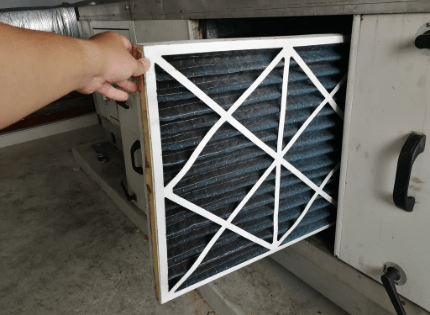
Fiberglass Air Filters
Fiberglass air filters are the least expensive type of filter and are disposable. Their MERV 4 rating is lower than other filters, so they will not do the best job at keeping out larger particles. If you or a family member has respiratory issues, this filter is not the best choice.
UV Filters
UV filters are typically used in air ducts and can be built into an HVAC system. They use ultraviolet light, which helps kill bacteria, viruses, and other microorganisms in the air that filters through.
However, UV filters are not the best for filtering out dust particles and other kinds of contaminants, and you should use them in conjunction with a MERV filter.
HEPA Filters
High-efficiency particulate air (HEPA) filters work great for people that have allergies or respiratory issues. They are very efficient at filtering out up to 99.97 percent of pollen, pet dander, mold, dust, bacteria, viruses, and other contaminants in the air.
HEPA filters are more expensive than other filter options, and your HVAC system will have more difficulty cycling air through. These filters are usually rated MERV 11 or higher.
What Factors Should You Consider When Choosing An HVAC Air Filter?
When choosing an HVAC air filter for your home, there are several things you need to consider to ensure you take the entirety of your family’s needs into consideration when choosing an air filter. Here are some things to keep in mind:
Sizing
Ensure you know the size of the filter that your specific system needs. Filters come in all shapes and sizes to fit a variety of models. When you buy a new air filter, double-check the size specifications to make sure it matches your system.
The easiest way to find the size is to look at the current filter in your furnace or air conditioner. The manufacturer always prints the size on the edge of the filter. Additionally, some crafty HVAC pros will put a filter size label near the filter compartment, along with the dates you need to change it.
Air Quality
Another factor to keep in mind is your air quality needs. If you suffer from allergies or other kinds of respiratory problems, look for a filter that will sift out pollutants.
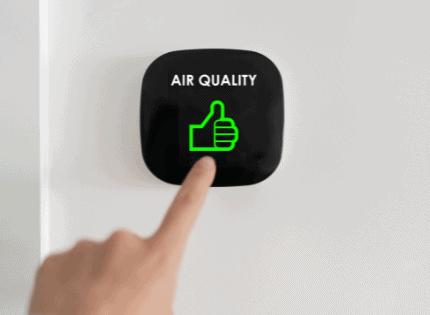
Higher quality air filters that filter most pollutants, like those with high MERV ratings, are the best for these homes. Remember that higher MERV ratings mean that your HVAC system will have to work harder to pull air through, so double-check that the system can handle it.
Determining what MERV rating your furnace or air conditioner can handle can be challenging. The best way to determine this is to look in the user manual, on the HVAC unit’s nameplate, or online. If you cannot find your system’s max MERV rating, give our team of HVAC pros a call for assistance.
Original and Aftermarket
You can purchase air filters both online and from physical store locations. When you are searching for an air filter for your HVAC system, you may notice two types of filters: original and aftermarket.
Original air filters are sold by the HVAC system manufacturer, while third-party manufacturers make aftermarket air filters for use in existing models. There usually is no difference in performance, but aftermarket filters tend to be the more cost-effective option.
Performance
It is essential to know and understand each of the MERV ratings and how they perform in varying air filters. Higher MERV ratings are more efficient in filtration but may strain your HVAC system. As such, they could lead to an increase in your energy bills.
Lower MERV ratings will not filter as many particles but will not place excessive stress on the system. Typically, your energy bills will be slightly lower than when you use higher MERV filters.
Ensure that the air filter is compatible with your HVAC system prior to purchase. You must choose a filter that your HVAC system can handle to avoid damaging the unit.
Air Filter Types
As we mentioned before, there are several different air filter types. Each filter material serves a different purpose, and there are also subsets within these categories to further accommodate specific needs.
The type of air filter is an important thing to keep in mind as it can determine how clean and healthy the air quality in your home will be.
How Often Should You Change Your MERV Air Filter?
The regularity of changing your air filter depends on the filter’s MERV rating. For air filters with higher MERV ratings, you should do replacements every three months at least. Our HVAC pros recommend checking them monthly.
If you fail to change these filters regularly, it may compromise efficiency as it restricts airflow.
Air filters with a lower MERV rating do not need to be changed as frequently, but that does not mean you do not have to change them.
The concept is the same: if you do not change the filter on a regular schedule, your system may develop issues due to the buildup of pollutants in the filter.
Check your filter monthly and replace it when you notice it’s too dirty for the best results. This will provide optimal filtration, which allows for cleaner air circulating in your home.
How Can An HVAC Contractor Help?
Our HVAC contractors can help you determine which MERV air filter is the best fit for your home and needs. Enlisting the help of our seasoned professionals will eliminate the guessing game that might happen when attempting to determine the properly sized filter for your air conditioning and heating system.
If you have questions surrounding your HVAC system or are unsure of what filter to choose, contact our HVAC professionals for help today.

